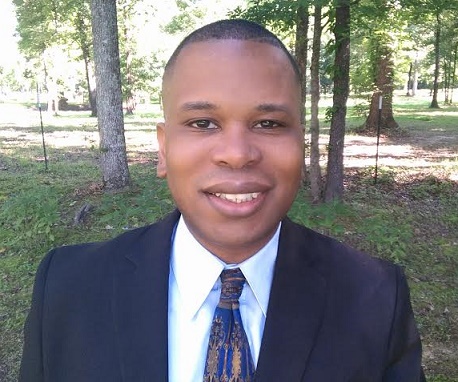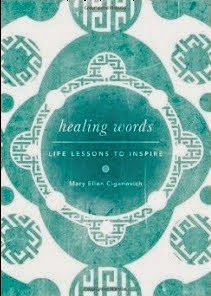Award-winning author/activist Nesta Aharoni is doing her part in not only encouraging young people but their parents as well. Her book MY GOODNESS: MY KIDS has been well-received from coast to coast, and she can be found throughout the country promoting her message of helping children reach their individual levels of success.
Cyrus Webb of Conversations spoke with Nesta about the book, the key to her success and why she felt like it was important to get her message out to the world. (Nesta was also a gust on Conversations LIVE! Radio in Sept. 2009. Listen to the interview here: http://tobtr.com/s/673438 )

Nesta, I appreciate your talking with us about your book MY GOODNESS: MY KIDS, CULTIVATING DECENCY IN A DANGEROUS WORLD. Before we get into the book, though, let's give our readers some background. Tell us a little about yourself. I am proud to be the author of a two-time award-winning book. My Goodness: My Kids has been honored with a 2009 Mom's Choice Award and a 2009 Living Now Award. I am a writer, editor, and magazine/book publisher. I am a past college instructor and department head. I have made many guest appearances on radio, TV, and Internet talk programs, and my book has been highlighted in numerous print publications. I am the mother of three grown, children. I live in
A lot of people say that they should write a book. You actually did it. What made you feel as though you had something to say? One day I was sitting around a large table with nine friends. Each one spontaneously and in an ordered pattern started to share stories of the challenges they were having with their children. Some of the stories were humorous, like the young boy whose homework accidently caught on fire. But others were not. I heard stories of cruelty to animals and other children, prison time for drug offenses, a pregnant 15-year-olds, a DUI offense, and on and on. Then it came to be my turn. All eyes were on me. But before I could open my mouth, one woman announced, "We are skipping you because you have never had a problem with your children." At first I felt a little stunned at the rebuff, but I soon realized what an honor it was to be skipped. She was right. I had never suffered a sleepless night because of my children…not in elementary school, junior high, high school, or beyond. According to this informal poll around a dining room table, I represented a small percentage of the population—10 percent of the population. It was then that I knew I had something to share.
When it comes to something as personal and sensitive as children some people don't take kindly to advice and suggestions. When you were thinking of your own experiences as a parent, why did you think people would respond well to what you had to say? Because the information I share is not theoretical. I offer real-life advice and techniques that actually worked for me. I have raised three decent, honorable, and responsible children who contribute generously to society. My Goodness: My Kids is a tribute to lay wisdom—parental lay wisdom. How do I define "lay wisdom"? It is the insight that is gained through living in, struggling with, and experiencing the world around us. It is grounded in real life. Lay wisdom is incorporated into our knowledge base after we grapple with situations, choices, and dilemmas. In My Goodness: My Kids, I offer the end product of 30 years of common sense child rearing—philosophies and methods that worked to build decency and character in my children. I expose my tools, including some unpopular methods and unconventional ideas, in the hope that others will be inspired to focus—first and foremost—on goodness and character building while they are raising their children. In the back of my book, I have a "Family Feedback" section where my husband and three grown children get the opportunity to make comments on the previous chapters. Readers find this section to be validating of my remarks.
I believe that part of your success as an author is the fact that you are very hands on with your career, traveling and doing whatever it takes to get the word out. Do you think one of the keys to that success is that you take advantage of every opportunity to share your message? Absolutely! The biggest challenge for authors is to research and discover all of the many ways available to them to promote their books. First, new authors must read books on book publishing and book marketing. Many promotional ideas are described in these books. Next, they must move into action. Here are some of the things I did to promote my book: web site with opt-in to collect e-mail addresses and build a platform, blog site with entries focused on my topic—raising honorable and responsible kids, Twitter, Facebook, LinkedIn, article writing and distribution to other sites, book reviews, library mailings, foreign rights programs, premium sales programs, newsletters, press releases, radio interviews, TV interviews, speaking engagements, publishers groups, list-serves. And the list goes on.
If you had to summarize the overall message of the book, what would you say it was? Evil exists in our world. We can try to fight it, treat it, and punish it. But we can also avoid a lot of it if we focus our parenting on raising honorable and responsible children. It is a parent's obligation, for society's sake, to focus first and foremost on building honor and integrity in their children—above and beyond all of the other things parents focus on today, like grades, success, talent, sports, popularity, happiness, et cetera. Parents can instill goodness by learning to recognize the many character-building opportunities that occur in their homes every single day. If a child shares a cookie with another child, that is a character-building opportunity. If that same child takes a cookie away from another child, that is also a character-building opportunity. The world will benefit most from children who are raised primarily to be good. Good children grow into individuals who bring humanity and security to a fragile world.

What has surprised you the most about the response of MY GOODNESS? What surprised me most is how quickly and enthusiastically parents have incorporated my ideas into their parenting plans. When I went to a recent medical appointment, my doctor told me that she had used my suggestions on how to control unruly children in a restaurant setting, and she was thrilled at how fun and easy it was and how successful the results were. She continues to use those techniques to this day. Many people have told me that my common sense, easy to comprehend approach has helped them more than their visits to professionals. It has been very rewarding to contribute to a develop generation in this way.
Did you have any expectations in particular with how you would measure whether or not the book met its intended purpose? I have two expectations. One is to inspire parents to take goodness seriously. When an event happens, like Michael Phelps losing an endorsement or Bernie Madoff cheating thousands of people, I want parents to recognize that these are teaching moments; further, I want them to develop the spirit and know-how to act on those moments. According to all of the feedback I have been receiving from readers, I would consider my mission successful. My other expectation is to have fun in the process. My speaking engagements and radio and TV appearances have helped me to grow professionally and to engage in some fascinating conversation with interesting people.
We all grow up differently, Nesta, so no one's children is exactly like any one else's. With that being said, what would you say is the common factor that all parents and their children deal with? Yes, there are some universal factors. One is that parents must maintain their position as the alpha dogs of their family units. If children do not learn to respect the authority of their parents, they will have a difficult time learning to respect their teachers, employers, et cetera. I have a whole chapter in My Goodness: My Kids devoted to this topic. The bottom line is that parents must enforce consequences to unwise actions. Without consequences to teach them their limits, kids can quickly get out of hand. If you look at my "Punishment" chapter, you will see some creative and successful ways to ensure consequences and reduce rebellion at the same time. Another universal factor is consistency. Parents can never put their guard down. Kids must be taught that you mean what you say every single time there is an episode to deal with. Another common thread is the importance of teaching empathy to our children. I consider empathy to be the most important quality we can instill in them. The Columbine shooters took a lack of empathy to the extreme. If our kids can learn to feel other people's pain in their hearts, the world would be a kinder place.
Aspiring writers and those just getting started in the business will read this and wonder how they get to where you are. What would you say to them? Research, research, and more research. Book publishing is not for the lazy or faint at heart. Become a self-didactic learner. Learn to improve your writing. Learn all about the book publishing process. Then teach yourself about all of the avenues open to you for promotion. Join local publishers and writers groups. Build a support system. Don't be shy about e-mailing contacts and asking for guidance.
Thank you for your time, Nesta. How can our readers find out more about you and your book? Readers can visit my Web site at www.MyGoodnessMyKids.com . They can also check out Amazon.com.








No comments:
Post a Comment